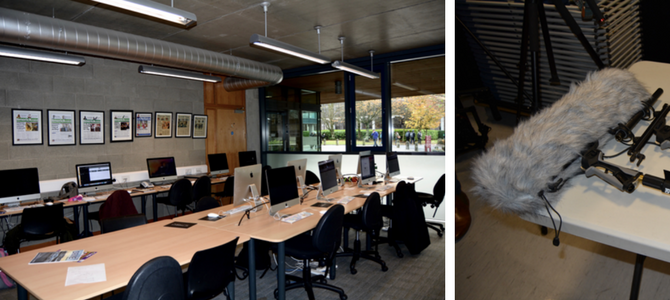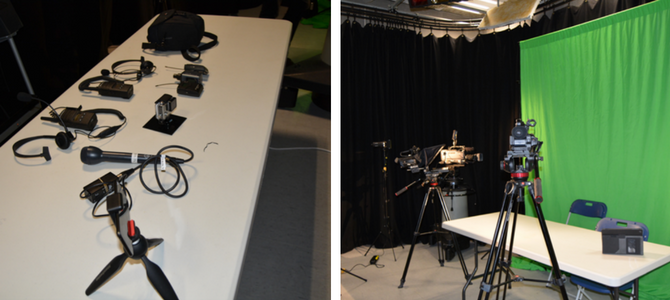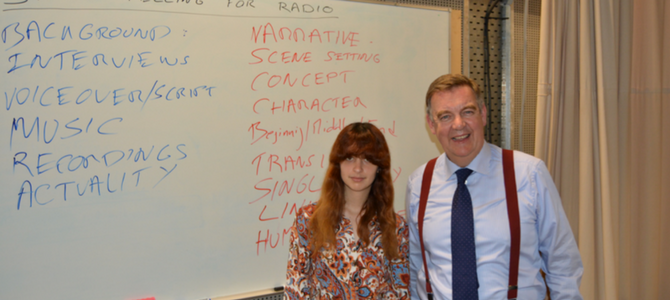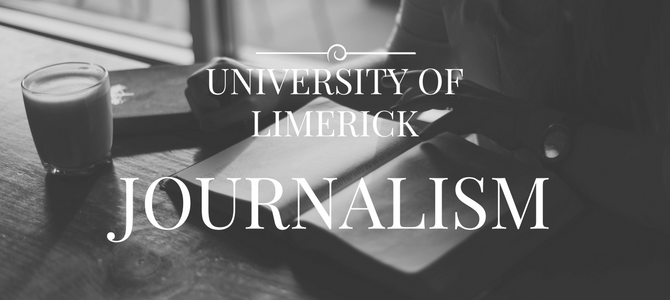Angie Weisgal is a MA student in Journalism at the University of Limerick and our US Ambassador. In her first blog, she tells us what’s involved in this one year master’s course and why she applied…
 How did I get here?
How did I get here?
I studied abroad at UL in my third year and had no idea I wanted to study journalism until I took a few classes during my time here. This was how I became interested in journalism and began to think of it as a good career path. I almost fulfilled the requirements to get a minor in journalism back at the university where I completed my undergrad in the States. I decided to take the last class I needed to get a minor in Journalism and in the last semester of my undergrad, I wrote for the school paper before applying for a MA in Journalism at UL.
What was the application process like?
It was straightforward. The application fee is reasonable (around €30-40) and about the same as applying to schools in the US, or maybe even less, depending on the school. In your application, you can apply for two different course choices. I didn’t need to sit any exams, I just needed to submit the transcripts I had gathered so far from my undergrad. I received a response very quickly and the course director set up a Skype interview. The interview took 15-20 minutes and I was asked why I was interested in undertaking a MA in Journalism; what my educational background was; and where I get my news from – it was no sweat. Within a week I was sent a provisional acceptance letter and provided I got my degree, I would be accepted into the programme. All I needed to do was pay the deposit and send my final transcripts to indicate that I had graduated. I found that the UL International Office was very good in communicating all of this information.
 What is the course like?
What is the course like?
It’s a one year master’s course and you do not need any journalism experience, although it does help if you do, as the lecturers do expect a lot from their students. It’s not hard to get journalism or writing experience. Applying for something like the International Student Ambassador Programme or writing for Campus.ie are great ways to get writing experience. Tuition fees for non-EU students are quite reasonable, and in my case it worked out at about US$11,000. For me, it is less expensive here than in the States because living expenses are lower in Limerick than many big cities and tuition isn’t really any higher. A big plus for those travelling from English speaking countries is that there is no language barrier to deal with in Ireland.
What do you like about your course?
- The University of Limerick has invested in facilities and the newsroom here offers iMac computers loaded with software like Adobe InDesign, Photoshop and Microsoft Office. There’s a TV studio and a radio studio and ULFM, the on-campus radio station, is another great place to gain experience on the airwaves.
- Small class sizes are always a bonus and in most of my classes there are less than 20 people. There are about 15 students in the MA in Journalism course meaning I have had the chance to get to know my classmates well and make friends.
- My course at UL is career oriented and you’re learning real world skills. Most of the classes are practical and project based and you’ll get a lot of writing, photography, and video/audio editing experience. We produce a newspaper called the Limerick Voice and there is an optional one-month internship at the end of your course too.
- It’s fast track, so you can get into your career sooner. Many master’s programmes are two years, meaning higher tuition costs and a longer delay in getting into your desired job.
- From time to time we have guest lecturers like Bryan Dobson, RTÉ broadcaster and Ger Colleran, former Editor and now Managing Director of the Irish Daily Star. This give you the opportunity to hear a diversity of perspectives from different types of journalism.
 What other perks are there at UL?
What other perks are there at UL?
- There are a lot of support systems like the UL First Seven Weeks initiative. It’s one of a kind. Most universities only have a one-day orientation. There’s a medical centre, a counselling centre, a writing centre, a buddy programme, and more.
- There’s a variety of clubs and societies to choose from at UL and you’re bound to find something of interest. In university, you need to balance classwork and fun and take part in plenty of trips and activities. I joined ULFM and I do a classic rock radio show.
- If you like the gym, the UL Sports Arena has a lot to offer. Some Olympians from Ireland train there, so you know it’s good! Interesting fact: Thomas Barr, who competed at the Rio Olympics, is a student at UL.
Wait! I still have questions!
For more information about studying in Ireland, visit the Education in Ireland website. If you have any questions about UL in particular, contact the International Office at UL. If you have a question for me, leave a comment below. I’m happy to answer any questions you have.

